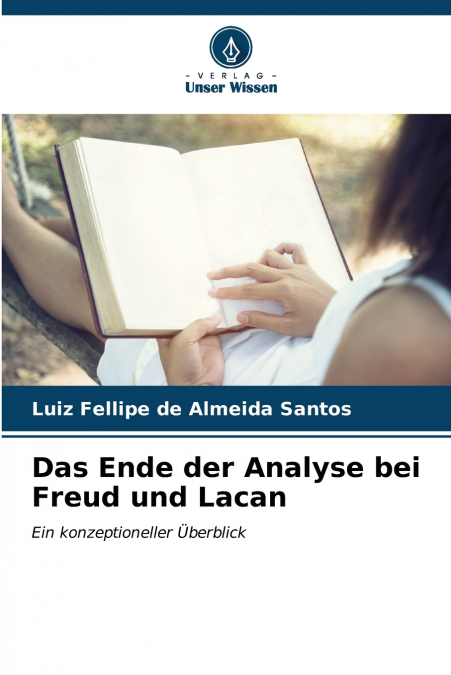
Luiz Fellipe de Almeida Santos
 Librería Desdémona
Librería Desdémona
 Librería Samer Atenea
Librería Samer Atenea
 Librería Aciertas (Toledo)
Librería Aciertas (Toledo)
 Kálamo Books
Kálamo Books
 Librería Perelló (Valencia)
Librería Perelló (Valencia)
 Librería Elías (Asturias)
Librería Elías (Asturias)
 Donde los libros
Donde los libros
 Librería Kolima (Madrid)
Librería Kolima (Madrid)
 Librería Proteo (Málaga)
Librería Proteo (Málaga)
Ziel dieses Beitrags ist es, einen konzeptionellen Überblick über die Theorien von Sigmund Freud und Jacques Lacan zur Frage nach dem Ende der Analyse zu geben. Ausgehend von den Freud’schen Sackgassen des Textes Analysis Terminable and Interminable (1937) zeigt sich, dass Lacan in seinem Werk bemerkenswerte theoretische und technische Fortschritte gemacht hat, indem er eine für das Ende der Analyse spezifische Theorie formulierte, in der die Ethik der Psychoanalyse ein logisches Ergebnis für das Subjekt und die Ursache seiner Spaltung unterstützt. Das Subjekt ist nicht mehr in der Lage, sich vor den Folgen seiner Äußerungen und dem daraus resultierenden Verlust seiner grundlegenden Bezüge in der Phantasie zurückzuziehen und muss sein Begehren ohne Garantien aufrechterhalten. Wenn alles, was gesagt wird, von der strukturellen Unmöglichkeit des Geschlechtsverkehrs ausgeht, kann das neurotische Leiden die Tatsache der Struktur nutzen, um die Angst auf andere Weise zu bewältigen. Bei der Metamorphose des Subjekts geht es also darum, mit der Natur des Scheins und der Irreduzibilität seines Symptoms in der Stille des Buchstabens umzugehen, der seine jouissance rubriziert.